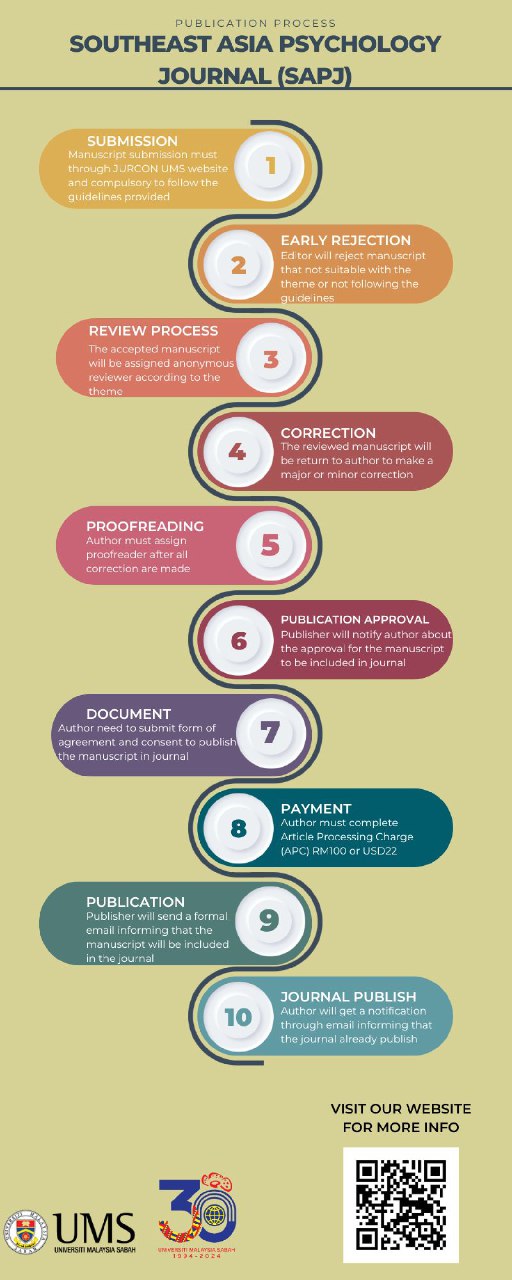THE ROLE OF LEARNING AGILITY AS MEDIATOR BETWEEN PSYCHOLOGICAL EMPOWERMENT AND COLLABORATIVE BEHAVIOR
DOI:
https://doi.org/10.51200/sapj.v11i1.4887Keywords:
Psychological Empowerment, Collaborative Behavior, Learning AgilityAbstract
The objective of this study is to determine the effect of psychological empowerment on collaborative behavior with the learning agility as a mediator among PT. Kazeto employees. The urgency of this research is to reveal other factors that can improve individual and company performance. Population in this study were all employees of PT. Kazeto, 250 people, from the head office and 3 branches. This research used a comparative quantitative approach with accidental sampling method. The results of first hypothesis showed that there is an effect of learning agility on collaboration behavior among PT. Kazeto employees. The relation between the variables of learning agility and collaboration behavior showed a path coefficient value 0.636 with a T value 9.009. This value is greater than t table (1.960). This means that the hypothesis was accepted. The second hypothesis showed that there is an effect of psychological empowerment on collaborative behavior with learning agility as a mediator. Indirect effect showed T Statistics of psychological empowerment on collaborative behavior is 7.419 with P Value is 0.000. This mean that the hypothesis is accepted.
References
Adamson, D., Dyke, G., Jang, H., & Rosé, C. P. (2014). Towards an agile approach to adapting dynamic collaboration support to student needs. International Journal of Artificial Intelligence in Education, 24(1), 92–124. doi:10.1007/s40593-013-0012-6
Baker, M. & Reiner, M. (Eds.). Dialogue and instruction. Modeling interaction in intelligent tutoring systems (pp. 39-55). Berlin, Germany: Springer-Verlag
Calefato, F., & Ebert, C. (2019). Agile collaboration for distributed teams softchnology. IEEE Software, 36(1), 72–78. doi:10.1109/ms.2018.2874668
Conger, J. A. & Kanungo, R. N. (1988). The empowerment process: integrating theory and practice. Journal Academy of Management Review, Volume 13: 471-482.
De Meuse, K. P. & Hostager, J. T. (2008). The effects of a diversity learning experience on positive and negative diversity perceptions. Journal Psychology. Volume 23: p.127– 139. DOI 10.1007/s10869-008-9085.
De Meuse, K. P., Dai, K., Hallenbeck, G. S., Tang, G. & King, Y. (2015). Using learning agility to identify high potentials around the world. Korn Ferry Institute.
De Meuse, K. P., Guangrong, D. & Swisher, V. (2012). Leadership development: exploring, clarifying, and expanding our understanding of learning agility. Journal Industrial and Organizational Psychology, p.280–315.
De Meuse, K. P., Karunaratne, Bernadine, Alexander & Aileen. (2012). The federal agility fix: developing the next generation of leaders. Korn Ferry Institute.
Goleman, D. (2006). Social Intelligence: The new science of human relationships. Random House Publishing Group. Google-Books-ID: mEKCDGXHVmMC.
Goleman, D. (2012). Emotional intelligence: why it can matter more than IQ. Random House
Lombardo & Eichinger. (2012). Exploring, clarifying, and expanding our understanding of learning agility. Article in Industrial and Organizational Psychology. DOI: 10.1111/j.1754-9434.2012.01445Publishing Group.
Olcott, Kelly, C. & Hinchman, Kathleen. (2019). Collaboration, Journal of Adolescent & Adult Literacy Vol. 63 No. 2 pp. 125–126 doi: 10.1002/jaal.1002.
Spitzer, S. T., (2018). The power of collaboration. the career press, inc. Wayne, N.J.
Spreitzer, (2008). Taking stock: a review of more than twenty years of research on empowerment at work. Organizational behavior.
Taylor, H. G, (2008). Identifying collaborative competencies. Journal of Public Personnel Administration. Vol 28. No2. DOI 10.1177/0734371X08315434.
Taylor, H. G. & Haddock, B. A. (2014). Public service motivation and willingness to collaborate an examination in the context of homeland security. Evidence-based HRM: a Global Forum for Empirical Scholarship. Vol. 2 No. 1, pp. 80-95. DOI 10.1108/EBHRM-07-2013-0018.
Taylor, H. G. & Morse S.R. (2016). Collaborative leadership development for local government official exploring competencies and program impact. Journal Public Administration Quarterly, Vol. 37, No. 1, pp. 71-102.
Taylor, H. G. (2006). Preparing leaders for high stakes collaborative action: darrell darnell and the departement of homeland security. Public administration review; 66, S1; Pro Quest pg. 159.
Taylor, H. G. (2008). Learning indicators and collaborative capacity: applying action learning principles to the U.S. Department of Homeland Source: Public Administration Quarterly, Vol. 32, No. 2, pp. 125-146.
Wardani, L. M. I., & Amaliah, A. (2020). The role of psychological empowerment as mediator between psychological capital and employee well-being. Journal of Critical Reviews, 7(13), 291-296.
Wendler, R. (2015). Development of the organizational agility maturity model. Federated conference on computer science and information systems pp. 1197–1206. DOI: 10.15439/2014F79







